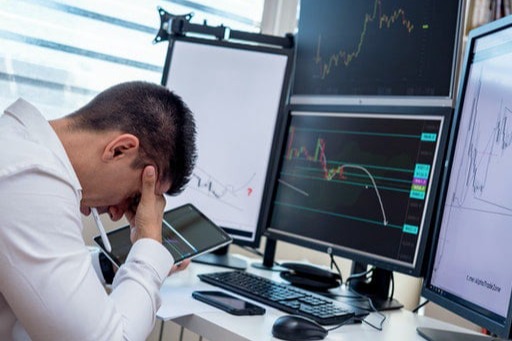
The One Emotion You Need for Peak Trading Performance
One trading emotion is directly responsible for consistent trading results or failure. To illustrate this emotion, I am using a golf example. From my experience playing professional golf, I know that tournaments are won and lost in the mind, not in the golf swing technique.
Your thoughts direct the actions you take.
Our minds record every experience we encounter. When we face the same situation in the future, it reminds us of what happened before.
This sometimes has devastating consequences, like it did with Greg Norman. And it can happen to you. Past experiences do influence future behavior.
Here is what happened
Greg Norman was playing in the 1996 Masters tournament. He led the tournament for three rounds. He was playing flawless golf and on track to win. Then, all of a sudden, his game fell apart. He blew a 6-shot lead, giving away victory to Nick Faldo in dramatic fashion.
He snap-hooked his first tee shot at the beginning of the last round, making a bogey on the 1st hole, and his victory ended right there. From that moment onward, he struggled most of the day till his lead painstakingly evaporated, leaving his fans stunned and in disbelief, and it all happened in the blink of an eye. It was one of the most embarrassing moments in golf for anyone to endure.
Collapses like this happen frequently with top sportspeople, and it also happens to traders all the time. Worse, many traders don't know why collapses or losses occur without an updated trading journal. Many traders don't have one.
You would think Greg Norman could control his emotions; after all, he was on top of his game and world golf at the time. Yet he succumbed to the pressure in the heat of the battle with a disastrous last round.
How could this happen? And why did it happen?
There is a great lesson you can learn here. First, the answer lies in his past experiences of losing in the same tournament. In 1987, Norman lost in a playoff for the Master’s title to Larry Mize. He also surrendered 3 round leads in all the other majors in previous years.
Fear of Losing
Greg lost focus on the present situation or moment. The past losses altered his behavior at the most inopportune moment in this tournament. And he repeated what happened in the past.
We cannot control the past, nor can we control the future. We can, however, control the present situation we face. And this is where Greg’s focus should have been and stayed.
The present gives us the edge over our competitors, so performance seldom wavers. Had he stayed in the present moment, his thinking and shot execution would have been much different, and he could have won. The present moment is often referred to in sports as “playing in the zone.”
When you experience this zone, it's a feeling everything happens subconsciously. Your mind is in a quiet state. It’s like you’re in a cocoon or trance, unaware of what is happening around you. You are mindful, not thoughtful.
This is the true edge you need in trading.
Watch this video. It displays total “present focus’ with no outside distractions. All the focus is on the prey till it’s caught in their jaws.